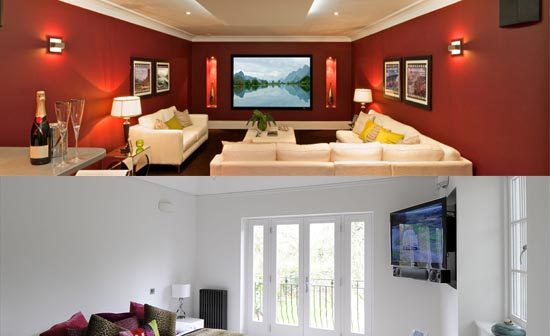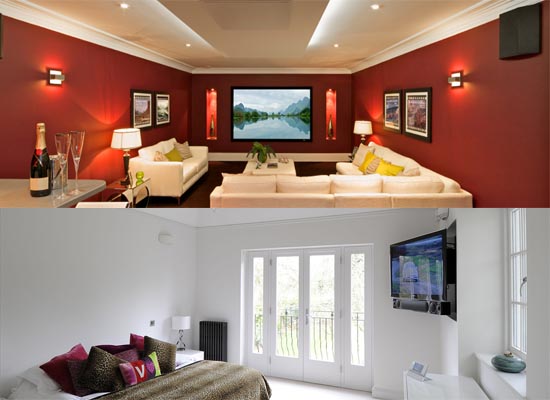If someone says home automation to you, what’s your reaction; a blank stare, tentative uncertainty or uncontrollable excitement? We’re hoping it’s the later, but given people’s typical scepticism with new-fangled technology it’s understandable if not. The thing is, given how technology has exploded in the last five to ten years (how many of us had what is effectively a computer in pockets in 2003?) it’s not unreasonable to expect this to make the jump into your home.
While it’s previously been regarded as an expensive luxury reserved for Home automation is evolving at a really impressive rate leading to more options, more affordable technology and much better solutions – all of this, and more, are reasons why this approach to managing your home is the future, say home automation suppliers Lewis Building Technology.
Reason 1: Your Home Will Be Infinitely More Comfortable
Controlling your central heating has been gradually getting more and more sophisticated over the last few years, but as soon as digital timers were introduced to the market everything kind of plateaued – which means that most people’s heating controls are completely out of sync with the progression of technology elsewhere in the home.
If you can remotely control your PC or your DVR from an app on your smartphone or tablet, why shouldn’t you be able to do the same thing for the essentials in your home? That’s what Nest Labs, ex-Apple employees and creators of ‘smart thermostats’, also think – as you can see by their video above. Whether it’s turning up the thermostat by a few degrees while you’re on your way home from work, or turning it down remotely if you’ve forgotten to shut off the heating while away, these devices (and others like it) are perfect for a more comfortable and energy efficient home.
Â
Reason 2: It’ll Integrate Seamlessly With Your Home
The great thing about modern day home automation devices is that they don’t dictate how your lay out your home or what devices you can have; you don’t need to have a special radiator, door lock or TV. Take a home cinema system for example – it’d be great if you could, via a phone or tablet, pull up a movie to watch on demand. With content moving to digital or cloud-based storage over discs, there’s no reason why this can’t be a reality in the next few years – and there’s also no reason why it has to dictate what equipment you have where.
Also take a look at ‘smart locks’ as another example – they’re not designed to replace your existing locks with something that might go wrong. Instead, they’re installed to work alongside your existing locks and do loads of convenient stuff like unlocking remotely, or making sure that you did bolt the back door. Home automation is, and always has been, about genuinely useful devices, rather than technology for technology’s sake.
Reason 3: It’ll Be Universal & Portable
While older home automation products are focussed around bespoke devices working independently and using proprietary interfaces, the future is geared more towards universal functionality – different devices work on the same WiFi networks or wireless frequencies, and won’t require countless different remotes and control pads.
One such example is the above ‘Benki’ product, giving you total control of your home’s outlets from your phone; like its inventor, Kenny Smith, says “We shouldn’t need to know what “GPIO” or “port-forwarding” means in order to turn off the iron from Disneylandâ€. As smartphones become a standard for virtually everyone, a lot of home automation products are starting to be geared towards control using apps – whether it’s with a tablet in your home, or for mobile connectivity on your smartphone.
Particularly when looking at automation of lighting and heating, it’s something you’re going to want to be able to do on the fly which is why manufacturers are shifting towards iOS or Android control as opposed to something proprietary.
As the technology becomes cheaper and more sophisticated, with smartphones and tablets both following the same technological path, in all likelihood we’ll see widespread adoption of home automation in the not too distant future. Hopefully.
As it stands, home automation tech is already incredibly sophisticated and far more affordable than it’s ever been – it’s also far more reliable. As more people start to see their different bits of tech as one unified system, and less like separate devices incapable of talking to each other, the more we’ll see this technology explode! (Not literally of course…)
  Â
This was a guest post written by Tom McShane – blogger, lover of all things tech-related and writer for UK-based Lewis Building Technology, who supply and install home automation systems throughout Oxfordshire.Â





